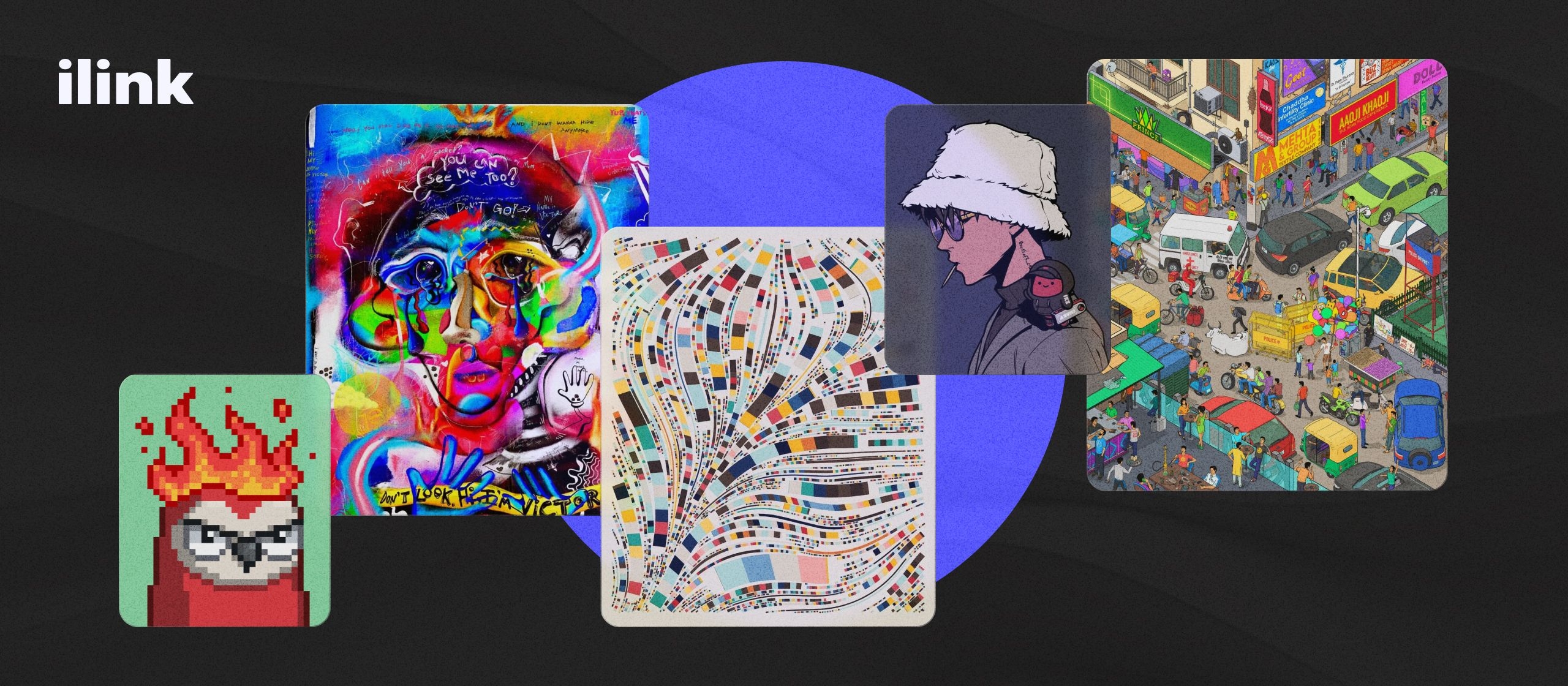Where Are Smart Contracts Used? Real-World Applications Across Industries in 2025

Introduction
Smart contracts are no longer a futuristic concept—they're actively reshaping how businesses and institutions operate. Built on blockchain technology, these self-executing agreements offer automation, transparency, and trust without the need for intermediaries. But where are smart contracts used today, and how are they transforming industries?
In this article, we’ll explore the most impactful smart contract use cases across various sectors in 2025 and why they matter for businesses looking to innovate.
What Are Smart Contracts? A Quick Overview
A smart contract is a piece of code that runs on a blockchain and automatically enforces the terms of an agreement when predefined conditions are met. These contracts eliminate manual processing, reduce the need for third-party oversight, and ensure that transactions are secure and transparent.
Platforms like Ethereum, Solana, and BNB Chain provide the foundation for developing and deploying smart contracts, making them the engine behind countless decentralized applications (dApps).
Why Are Smart Contracts Important?
Smart contracts play a central role in the evolution of digital infrastructure. As businesses move toward automation and decentralized solutions, smart contracts provide the foundation for secure, trustless transactions that can be executed without human intervention.
Here’s why smart contracts are important in today’s economy:
- Trust without intermediaries. By removing the need for brokers, banks, or notaries, smart contracts build trust directly into the code. All parties can be confident that the agreement will execute exactly as programmed.
- Real-time execution. Transactions happen instantly once conditions are met—no need to wait days for processing, approvals, or manual confirmations.
- Immutable and tamper-proof. Once deployed on the blockchain, a smart contract cannot be altered. This ensures data integrity and protects all parties from fraud or manipulation.
- Programmable logic. Smart contracts allow you to build complex business logic into your applications—from payment workflows to governance rules—allowing for fully automated systems.
- Global accessibility. Smart contracts work across borders, providing access to services, platforms, and financial tools in both developed and emerging markets.
In short, smart contracts are not just a technical innovation—they’re a business tool that can dramatically improve operational reliability, compliance, and cost-efficiency.
Where Are Smart Contracts Used? Key Industries and Applications
Let’s take a closer look at real-world applications of smart contracts in 2025:
1. Finance and DeFi (Decentralized Finance)
The financial sector was one of the first to adopt smart contracts. In DeFi platforms, smart contracts facilitate everything from lending and borrowing to staking and yield farming without banks or brokers.
- Use case. Platforms like Aave and Compound use smart contracts to match borrowers and lenders, automatically setting interest rates and enforcing loan terms.
2. Insurance
In the insurance industry, smart contracts simplify claims processing by triggering automatic payouts based on real-world data, such as weather events or flight cancellations.
- Use case. Parametric insurance products use smart contracts to instantly compensate users if predefined conditions are met (e.g., rainfall levels or delays).
3. Real Estate
Smart contracts streamline real estate transactions by digitizing the entire process—from title transfers to escrow management.
- Use case. Tokenized property platforms enable fractional ownership, with smart contracts managing purchases, leases, and dividends.
4. Supply Chain and Logistics
Smart contracts in supply chain increase transparency and reduce fraud by automating verification of product origins, delivery confirmations, and payments.
- Use case. Blockchain-based logistics platforms use smart contracts to trigger supplier payments when shipments are confirmed.
5. Healthcare
In healthcare, smart contracts enable secure sharing of patient data, enforce compliance rules, and manage insurance reimbursements.
- Use case. Hospitals can use smart contracts to ensure that sensitive medical records are accessed only by authorized parties and track consent.
6. Gaming and NFTs
Blockchain games and NFT platforms rely on smart contracts to govern in-game economies, reward systems, and digital ownership.
- Use case. In play-to-earn games, smart contracts handle NFT minting, transfers, and token distribution based on player achievements.
7. Digital Identity and Credentials
Smart contracts play a role in self-sovereign identity (SSI) systems, where users control their credentials and personal information.
- Use case. Academic institutions use smart contracts to issue tamper-proof diplomas and certifications that employers can instantly verify.
8. Legal and Business Agreements
Smart contracts serve as e-contracts, executing terms of service, NDAs, royalty payments, and more.
- Use case. Musicians and content creators receive automated royalty payments through smart contracts when their work is used or purchased.
Benefits of Using Smart Contracts Across Industries
The adoption of smart contracts across industries is accelerating because of the measurable value they offer. Whether you're in finance, healthcare, logistics, or real estate, smart contracts can help modernize your operations.
Here are the key benefits:
- Automation of business processes. Smart contracts eliminate the need for manual approval, email follow-ups, and third-party oversight. This results in faster workflows and fewer bottlenecks.
- Cost savings. With fewer middlemen and automated execution, companies can significantly reduce overhead expenses, transaction fees, and administrative labor.
- Enhanced security. Smart contracts run on blockchain technology, which uses cryptography and consensus mechanisms to secure transactions. This reduces the risk of hacking, unauthorized changes, or data leaks.
- Transparency and accountability. All actions and conditions coded into the contract are publicly verifiable on the blockchain. This fosters transparency among users, partners, and regulators.
- Reduced disputes. Since smart contracts execute automatically based on agreed-upon conditions, there's less room for human error or misinterpretation—minimizing conflicts and legal issues.
- Increased efficiency. From DeFi transactions to supply chain validation, smart contracts streamline complex operations, allowing businesses to scale faster and respond to market changes more quickly.
- Audit readiness. Every transaction recorded on the blockchain is traceable and timestamped, making it easy for companies to meet compliance requirements or conduct audits.
Ultimately, the benefits of smart contract applications extend far beyond cost reduction—they fundamentally improve how businesses operate, transact, and build trust in the digital age.
The Future of Smart Contract Adoption
Looking ahead, smart contracts will only become more widespread. Key trends shaping their future include:
- Integration with AI and IoT for automated decision-making
- Cross-chain interoperability for seamless transactions between networks
- Enterprise adoption in sectors like banking, energy, and government
- No-code tools that allow businesses to deploy contracts without technical expertise
These trends will expand the list of industries using smart contracts, making the technology more accessible than ever.
Smart contracts are no longer limited to blockchain enthusiasts—they’re powering real solutions across finance, insurance, real estate, healthcare, and beyond. As more businesses look for secure and efficient ways to operate, understanding where smart contracts are used becomes essential.
If you're ready to explore how smart contracts can drive your next innovation, our development team is here to help.
Comments (0)
Latest Posts

Understanding the mechanics of these platforms is crucial for anyone looking to participate in the world of NFT trading and digital ownership.

In this article, we will dive into the key roles in a blockchain development team, the necessary skills for each role, and the tools and methodologies that help these teams collaborate efficiently and deliver top-notch blockchain applications.
Do You Have Any Questions?
Leave your details - we will contact you to answer all your questions

